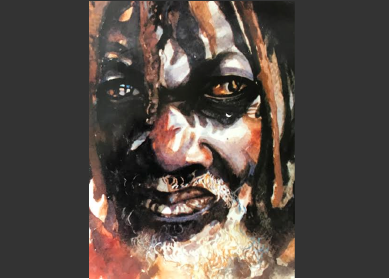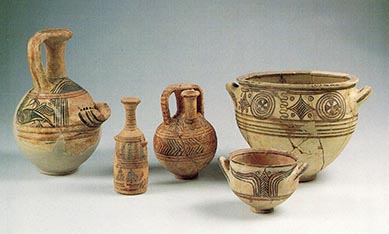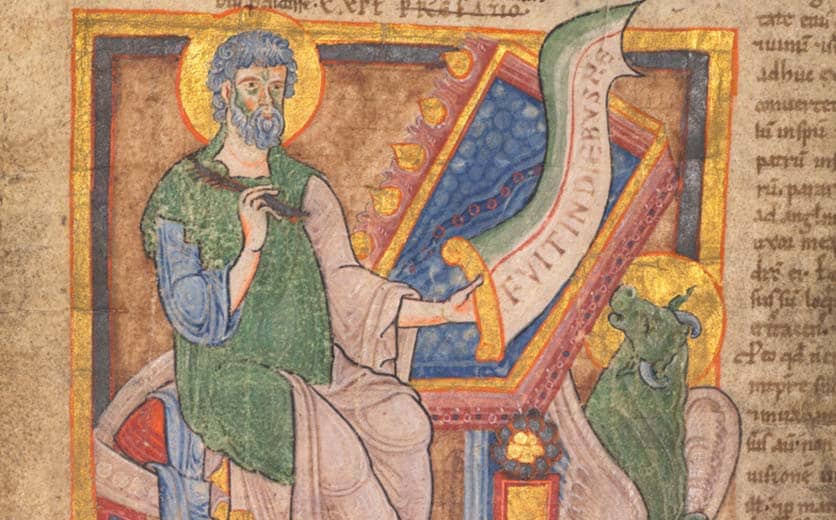The story of Samson is nothing if not riveting. In fact, Samson has been the subject of paintings, movies, and docudramas, not to mention pop, folk, and reggae songs. While Samson is best known for both his supernatural strength and his illicit relationship with Delilah, he and his story are much more complex than popular representations reflect.
We read of Samson in the Hebrew Bible/Old Testament’s book of Judges. One of twelve officials appointed to judge Israel, Samson is never overtly named a judge, nor is it clear just what judging entails or that he is qualified for the task. Samson is, however, identified as a Nazirite—one set apart to God (see Num 6:1-14)—when his barren mother is visited by an angel of the Yahweh and commanded to consecrate her son to God (Judg 13:5). The reader soon finds that, as a result, Samson has extraordinary divine powers, but not before learning of Samson’s complicated relationship with the Philistines, the sworn enemy and oppressor of Israel (Judg 14:4). Though Samson is consecrated to God and must follow a stringent purity code, he repeatedly violates his vow. Samson marries a non-Israelite (Philistine) woman, eats what is unclean, parties, touches a carcass, sleeps with a sex worker, falls in love with another woman named Delilah, and, finally, cuts his hair. Many of these breaches directly involve the Philistines, who are determined to destroy Samson due to his desire to defy them. The story is a veritable cat-and-mouse game, where Samson and the Philistines go blow for blow, neither able to overcome the other, until the story’s conclusion. In the penultimate scene, Samson divulges “his whole secret” to Delilah, affording the Philistines the opportunity to take him captive. “If my head were shaved,” he confesses, “then my strength would leave me; I would become weak, and be like everyone else” (Judg 16:17). The protagonist is shaven, blinded, shackled, and incarcerated by the Philistines. While Samson is enslaved, however, his hair begins to grow. In the final act, Samson is forced to “entertain” the Philistines during the celebration of their conquest (Judg 16:25). Chained between two pillars, as the Philistines revel, Samson beseeches Yahweh to stir and strengthen him one last time. Samson cries, “Let me die with the Philistines,” and he does (Judg 16:30).
Divine Hero, Mercurial Megalomaniac, or Village Idiot?
In the popular and ecclesiastical imagination, Samson is either a blundering buffoon, who is as baffled by his spectacular strength as his assumed adversaries (and throws it all away for a seductive minx), or the strongest man in the Bible. Such binaries, however, are unhelpful and can actually be detrimental when reading the Bible, and particularly Samson. Samson might be read as neither, both, or much more. One of the unfortunate effects of reading Samson’s tale as a solely written text is that we have missed out on its origins in oral tradition. The layered quality of Samson’s oral story is scintillating and sensational and is meant to be as entertaining as it is informative. By reading it simply as literary, rather than oral, readers tend to literalize, thereby missing the hyperbole, humor, and absurdity of this enigmatic narrative. Not only so, but much of the irony and entendre is lost in translation. For example, in retaliation, Samson catches three hundred foxes, ties them together by their tails, sets them on fire, and then releases them into Philistine fields and runs to hide in Judean territory (Judg 15:4-8). If this is not fantastic enough, exasperated that his mercuriality has now put them in danger (rather than protected them), his own people turn him over to the Philistines in Lehi, which means “jawbone” or “cheek.” While there, Samson finds a donkey’s jawbone and, unable to turn the other cheek, he destroys one thousand Philistines with his lehi (cf. Lam 3:30). Samson is a paradox, which is why scholars and reader-hearers of the Bible have debated the strata and genre of his tale for decades. It reads like historiography, yet the story is full of irony and drama that could as easily be interpreted as comedy—or dramedy in common parlance.
Did Samson commit suicide in order to take revenge on the Philistines? (And did God give him the strength do it?)
The primary conflict in the story is the ongoing strife between Samson and the Philistines. The Philistines perpetually attempt to annihilate Samson because this heavyweight judge is zealously seeking to subvert their rule over his people. Each time Samson is incited against the Philistines, the text makes it clear that Yahweh infuses him with strength. The Hebrew word used to describe the act when Yahweh empowers Samson is, in most translations, either translated “stir” or “rush on.” Interestingly, it could also be rendered “disturb,” and his episodes resemble a sort of disturbance, a possession or epilepsia where Samson is seized by the spirit of the Lord (see Judg 15:15-20). After his hair is cut, however, when Samson calls upon Yahweh in order to destroy himself and the Philistines, ending this enduring rivalry once and for all, the text does not employ this terminology. The narrator shares that even as Samson is incarcerated, his hair grows, leading the reader to believe that he is regaining strength from God. Surely, while chained between the pillars of a Philistine temple, Samson cries out to Yahweh for strength and he indubitably has the strength to collapse the pillars, but the text is not explicit about Yahweh’s involvement in this final suicidal-homicidal act. In fact, Yahweh is not mentioned at all outside of Samson’s request. What this implies, then, is that while each previous attack against the Philistines may have been divine, Samson’s combination murder-suicide was no divine act. It was a totally self-motivated and autonomous endeavor. In the blink of an eye, Samson is empowered and, like an ancient Israelite kamikaze, Samson sacrifices himself in order to kill the Philistines, but, unlike Samson’s previous divine exploits, Yahweh is MIA. And so, the Philistines and Samson alike are crushed under the weight of the temple, and this haunting scene leaves the reader emphatically aware of the ambivalent and interdependent relationship between Samson and the Philistines.
Bibliography
- McKinlay, Judith E. “Negotiating the Frame for Viewing the Death of Jezebel.” Biblical Interpretation 10 (2002): 305–22.
- Smith, Carol. “Samson and Delilah: A Parable of Power?” JSOT 76 (1997): 45-57.
- Rowlett, Lori. “Violent Femmes and S/M: Queering Samson and Delilah.” Pages 106–15 in Queer Commentary and the Hebrew Bible. Edited by Ken Stone. Cleveland, OH: Pilgrim Press, 2001.
- Eynikel, Erik M. M., and Tobias Nicklas, eds. Samson: Hero or Fool? The Many Faces of Samson. Leiden: Brill, 2014.
- Mobley, Gregory. Samson and the Liminal Hero in the Ancient Near East. New York: T&T Clark, 2006.





